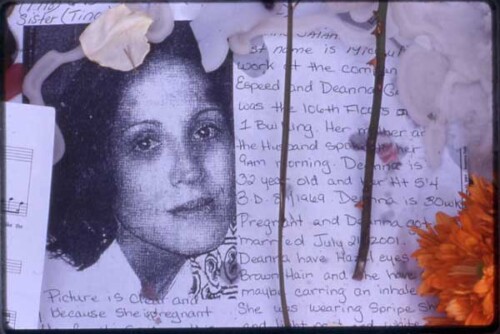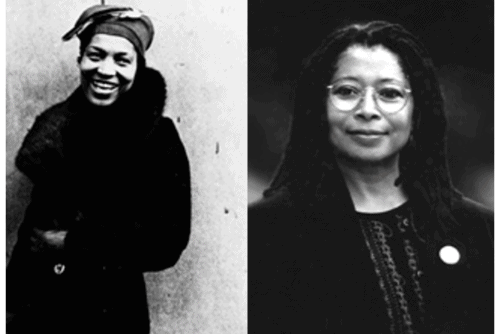The Parlor, the Airplane, and the Prison
In her memoir, Cho portrays the writer of her short-lived television show, All-American Girl, as a “really nice . . . man” who nevertheless fails to transform her stand-up routine into an amusing, family sitcom:
Gary . . . cranked out a pilot from five minutes of my standup, a sunny expose on what it was like to grow up a rebellious daughter in a conservative Korean household. I spared him the real story. The truth was that I lived in my parents’ basement when I was twenty because my father couldn’t stand the sight of me, and therefore banned me from the rest of the house. . . . I was unemployed and trying to kick a sick crystal meth habit by smoking huge bags of paraquat-laced marijuana and watching Nick at Night for six hours at a time. Now that’s a sitcom. (105)
Though it is unclear whether the Chos’ house in San Francisco is a Victorian by builder’s design, certainly its segregation of spaces establishes its resemblance to the Victorian household publicized in fiction of the mid-nineteenth century, a “partitioned and hierarchical space,” whose governing principle of division is designed to contain aberrant desires in prison-like spaces – e.g., the basement (Armstrong 185). 1 The efficiency of the well-ordered household turns gothic, with the parlor in fact requiring the prison.
Interestingly, these vertical levels of the Victorian household do not appear as the earliest memories the comedienne holds toward something called “home.” In the opening pages of her memoir, Cho offers a portrait of exile, that while seemingly the antithesis of home, actually constitutes one of the poles of home as Una Chaudhuri construes it. 2
My parents had a talent for leaving me places when I was very young. This had to do with immigration difficulties. . . . My father didn’t know how to break it to my mother that he was to be deported three days after I was born, so he conveniently avoided the subject. . . .
In my parents’ colorfully woven mythology, that was the one corner of the tapestry they carefully concealed. Knowing I probably wouldn’t remember, they kept it to themselves. But I did remember, perhaps not actual events but colors and shapes and feelings. The insides of planes, the smell of fuel, unfamiliar arms, crying and crying. (2)
One doesn’t normally construe the airplane as a home space. Cho, nevertheless, brings our attention to her primary attachments formed through this confusing space, experienced as a series of sensations, “the insides of planes, the smell of fuel, unfamiliar arms, crying and crying” (2). These objects outside of mother and father, as well as spaces outside of both the parlor and the cellar, populate the landscape of home – defined now as vehicle of transit. 3
Cold War politics as much as the intervention of the Law of the Father, then, leads to the young Margaret’s sense of maternal theft. If the Cold War hysteria to protect the nation’s boundaries (and ideological integrity) is at least partly responsible for the sense of fragility the young Margaret feels in her relation to her primal (erotic) attachments, it also leads to a kind of promiscuous, excessive, and indiscriminate attachment: “in the spirit of my birthplace, I learned that if I couldn’t be with the one I loved, I would love the one I was with. I was one [year old], and already somewhat of a slut. I loved lots of stewardesses, and lots of old people” (2). In short, this airplane space – that space which carries one across borders and territories – forms a shadow home to that other site of the Victorian household, each radically distinct with respect to their partitions and segregated spaces.
In the live performance, Cho expressly refers to the vertical space of the household in order to mock her own family’s distance from the ideal subjects of the situation comedy. The episode occurs in both the text and in the live performance. In comparison, the written memory of “jet fuel,” “crying and crying,” and “lov[ing] the one I was with” does not appear in the stage-act. Arguably, however, the lack of a literal transcription of these latter events in the live concert underestimates the gestural and affective translation of them. The promiscuous attachments of the sort spurred on by the deportation episode color the rest of the stand-up act and are amply staged in gesture and movement. Cho doesn’t verbally refer to the material on her being sent to Korea at the age of one; and yet, the staging of her “slutty” desires, her proliferating erotic objects, might be construed as the trace of historical memory. The comedienne, therefore, imports her ambulatory sensibility to the stage in an indirect fashion, in order to negotiate between the medium of denotative language and that of bodily pantomime.
Cho uses the stage, the theatrical space, to hold forth on her own monstrous body, a body whose leakiness 4 (inadequate partitioning) is made monstrous by bourgeois codes of respectability and segregation (that view combination as a horror) and relegate such a body to the basement. What this re-segregation of the body tries to do is quite literal: it sends the abased body downward, lowering it. But while the household spatially forges those subjects and body parts nominated as abased or abjected, standup reverses the spatial relation. “Stand-up makes vertical (or ventral) what should be horizontal (or dorsal)” (Limon 4) or, to use the metaphors provided by Cho’s text, the basement takes up the space of the aerial, the airplane.
- The child sequestered in the attic or cellar is a tried and true convention of foundling fiction, where typically the orphan, who often doesn’t know he’s an orphan, eventually discovers that the cruel guardians looking after him are not his parents afterall. The usual trajectory of this fiction moves from the rejection of the false, unloving caretaker(s) – false because overrun by “aberrant forms of desire” (Armstrong, 184) whether excessive appetite, greed, prejudice, or political aspiration – to the restoration or adoption of a new family coincident with the recovery of a well-ordered household (c.f. Dickens’ Oliver Twist). Cho alludes to this restoration narrative even as she takes it in a different direction, especially in her stand-up performance.[↑]
- For Chaudhuri, home encompasses the sensibilities and discourses of both belonging and exile: “The spatiality of modern drama involves a complex figuration of its favorite setting, the domestic interior. The idea of home . . . can be imagined as a semantic spectrum whose two poles are occupied by the tropes of belonging and exile. . . . In whatever quests, revolts, contest, and ambitions the heroes of this drama get involved, they invariably encounter and engage the issue of home, that is, of belonging and exile” (27).[↑]
- In a more extended version of this paper, I elaborate on the airplane as both a public, rationalized as well as a private, domestic space, one that immediately historicizes the narrator’s subjection formation.[↑]
- With regard to this leakiness, the written memoir offers an account of a childhood incident that results in Cho’s being taunted as the “Pee Girl” (13). The astonishing part of this story is that the young Margaret feels simply a lack of horror at wetting her pants. She is not bothered by this leakage, though terribly bothered by her classmates’ reaction: they shun her (in an act of urinary segregation).[↑]



